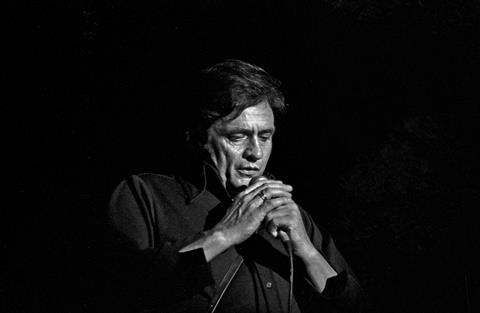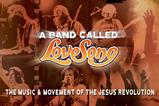20 years on from the death of Country superstar Johnny Cash, Derek Walker takes a look at the complicated life, faith and struggles of the ‘Man in Black’

For many years, Johnny Cash was best known for songs like ‘A boy named Sue’ and ‘Ring of fire’. But now, his 2002 cover of Nine Inch Nail’s ‘Hurt’ is right up there, and possibly one of the most iconic tracks of his career.
‘Hurt’ was written about heroin addiction, but when Cash sang it – frail, free of polish and with his voice as craggy as his ageing face – he made it his own. His authorised biographer, Steve Turner, called it a “masterful… melancholy meditation upon his own mortality”.
As well as the many career highs, Cash experienced much hurt. He suffered trauma, rejection and recurrent addictions but, through it all, he kept his faith - and his faith kept him.
Beginnings
Johnny was not the name given to Cash when he was born, during the Great Depression, to poor, cotton farming parents in Arkansas. As they couldn’t decide what to call him, they compromised on J.R.– R for both his father’s name (Ray) and his mother’s maiden name (Rivers). He only changed it when he joined the US air force, aged 18, because he was not allowed to be known only by initials. So he became John R Cash.
I wear the black for the poor and the beaten down
The first major hurt Cash experienced was the death of his older brother, Jack, who was almost cut in half in a circular saw accident. As mentor to Johhny, Jack had a deep faith and, just before he died, he told his family that he could see angels: “They’re so beautiful…It’s so wonderful, and what a beautiful place that I’m going.” According to biography.com, Johnny went out early to help dig the grave, his clothes still dirty at the funeral. From that point on, Cash turned more introspective, bought a guitar, started composing lyrics and developed a fervent faith.
Cash once told journalists that his mother had prophesied his fame: “My mother told me to keep on singing, and that kept me working through the cotton fields,” he recalled. “She said, ‘God has His hand on you. You’ll be singing for the world someday.’”
The pressures of fame
Cash’s main musical influences were songs from church, from working in the cotton fields and from country radio – especially Saturday night’s Grand Ole Opry.
Sun Records’ legendary manager, Sam Phillips, gave Cash and two bandmates an audition in 1955, leading to a single-album deal. While he was at Sun, he popped into the studio to see his friend Carl Perkins record with Jerry Lee Lewis. Elvis Presley was also there to see Phillips, and it ended up as an impromptu jam session, known retrospectively as The Million Dollar Quartet. They recorded over 40 songs, half of which were gospel.
In 1958, Cash moved to Columbia Records, where he started to chart immediately. Success led to a predictably hectic touring schedule and, in order to keep going, he started to take amphetamines. His addiction to these eventually resulted in Cash driving a tractor into a lake, accidentally starting a forest fire, breaking his nose and teeth in a car crash and smuggling drugs from Mexico.
God has His hand on you. You’ll be singing for the world someday
The pressures of fame, his addiction to drugs and his reported adultery led to end of his first marriage to Vivien Liberto in 1966. By this time, Cash had already met June Carter, a singer from a leading country music dynasty (and distantly related to President Jimmy Carter). After an on-stage proposal, the pair married in 1968. Despite a reportedly tempestuous relationship, the pair remained together for life. “The love that John and I share with our love for Christ is one of the most precious gifts God could have given us,” Carter once wrote.
Carter’s influence led to Cash re-dedicating his life to Christ and, after 30 months of study (with encouragement from Billy Graham), he received a theology degree and became a minister. Romans 8:13 was Cash’s favourite Bible verse: “For if you live according to the sinful nature, you will die; but if by the Spirit you put to death the misdeeds of the body, you will live.” “Years ago I claimed this Scripture as my own promise, and I feel there were many times a lifesaving situation was realised by turning to this scripture for counsel,” he said.
A voice for the underdog
Having grown up in poverty, one outworking of Cash’s faith was his commitment to being a voice for the underdog. From the 1960s onwards, Cash showed a heart for the oppressed and ignored through work such as his album Bitter Tears: Ballads of the American Indian. He famously played concerts and recorded in jails, such as Folsom and San Quentin.
In his 1971 hit ‘Man in black’, Cash explained that his wearing black clothing symbolised his affinity with the downtrodden people in the world: “I wear the black for the poor and the beaten down / Livin’ in the hopeless, hungry side of town / I wear it for the prisoner who is long paid for his crime / But is there because he’s a victim of the times.”
Having reached the peak of country royalty, Cash was in demand. Bob Dylan and Emmylou Harris asked him to record with them. But despite this, in 1986, after 28 years, Columbia ended his contract. After taking morphine for foot ulcers, his addiction to prescription pills, which would be a life-long battle, returned.
But still faith drove him forward. That same year, he published the novel Man in White, a fictional account of six years in the life of the apostle Paul, including his Damascus Road conversion. During his lifetime, he recorded several gospel albums, as well as a spoken-word recording of the New Testament. He often performed at Billy Graham crusades.
Resurgence
In 1993, U2 gave him a rare lead vocal role on ‘The wanderer’, a song that he co-wrote with lead singer and fellow Christian rock star, Bono. Based on the book of Ecclesiastes, its lyrics include: “They say they want the Kingdom, but they don’t want God in it”.
That same year also saw the start of his ten-year collaboration with producer Rick Rubin. Rubin stripped his songs right back, letting that gruff baritone run free for his American Recordings series. The albums brought him a new audience and re-established his reputation.
And that video for ‘Hurt’ was, for many, the pinnacle of his long career, in which his faith was more important to him than anything else.





































No comments yet